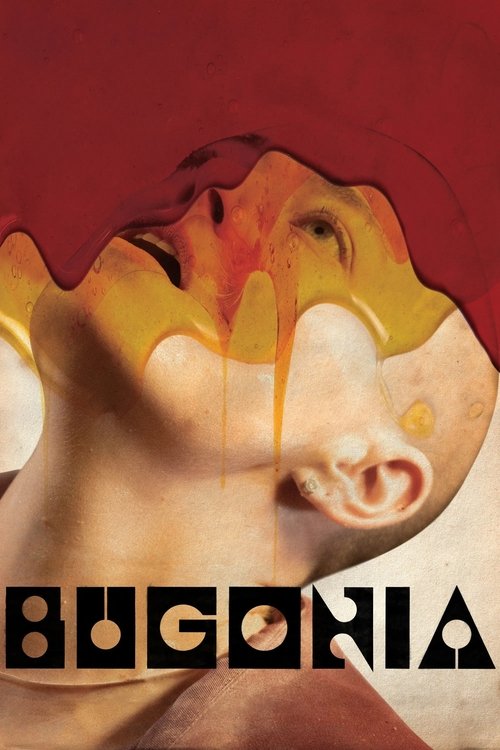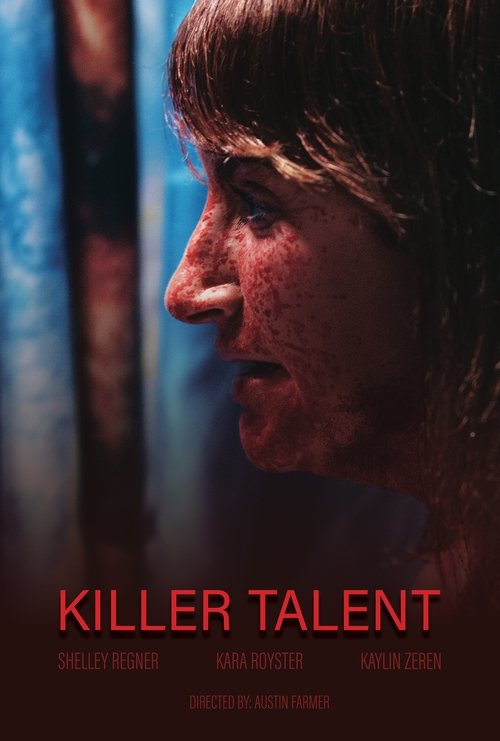
Ask Your Own Question
What is the plot?
Die My Love (2025) opens with Grace, a young woman who has recently moved with her husband Jackson from the bustling life of New York City to Jackson's rural childhood home in Montana. The couple seeks tranquility and a fresh start away from urban chaos. However, the quiet isolation of their new environment soon reveals itself as a crucible for Grace's fragile mental state. As she navigates the early days of motherhood, Grace's psychological distress intensifies, gradually unraveling her grip on reality.
The film traces Grace's descent into postpartum psychosis, portraying her internal turmoil with stark intimacy. Early scenes depict her struggling with the overwhelming demands of caring for her infant son, compounded by the alienation she feels in the remote countryside. Her relationship with Jackson becomes strained as his attempts to support her falter against the growing chasm between them. Moments of tenderness are interspersed with episodes of confusion, paranoia, and emotional volatility, illustrating the cyclical nature of her mental health crisis.
Grace's interactions with the sparse local community further emphasize her isolation. She encounters figures such as Karl, a local acquaintance whose ambiguous presence adds to her sense of unease, and Pam, an older woman who offers a glimpse of the rural life Grace is trying to assimilate into but cannot fully embrace. These peripheral relationships underscore the gulf between Grace's internal chaos and the external world's indifference.
As Grace's psychosis deepens, the narrative blurs the boundaries between reality and hallucination. She experiences vivid, sometimes violent visions that reflect her fears and desires. The recurring motif of the stag with a golden eye emerges as a haunting symbol throughout the film, embodying Grace's yearning for understanding and escape from her mental imprisonment. This animal imagery parallels her increasingly primal behavior, especially in her interactions with her son, where moments of maternal tenderness are shadowed by a feral, almost animalistic connection.
The film's tension escalates as Grace's mental state deteriorates, leading to a series of unsettling events that strain her marriage to breaking point. Jackson's attempts to intervene are met with resistance and confusion, culminating in a confrontation that lays bare the fragility of their bond. The rural setting, once a hopeful refuge, becomes a claustrophobic trap where Grace's psychosis manifests in unpredictable and sometimes dangerous ways.
Throughout the story, Grace's ambivalence toward motherhood is palpable. She oscillates between deep affection for her child and overwhelming resentment, fantasizing about escape yet unable to sever the bond. This duality drives much of the film's emotional core, portraying motherhood not as a simple joy but as a complex, often painful transformation.
The climax unfolds as Grace's grip on reality slips further, leading to a crisis that forces both her and Jackson to confront the limits of their endurance. The film does not shy away from depicting the raw, often brutal consequences of untreated mental illness, culminating in a moment of catharsis that is both harrowing and strangely liberating.
In the final scenes, Grace finds a form of release through laughter and absurdity, suggesting a wild resilience amid ruin. The narrative closes on an ambiguous note, with Grace's future uncertain but marked by a fierce, untamed spirit that refuses to be extinguished.
Die My Love is a psychological dark comedy-drama that explores the harrowing journey of a woman battling postpartum psychosis in a remote rural setting. The film's narrative is deeply character-driven, focusing on Grace's internal experience and the impact of her mental illness on her relationships and environment. It features performances by Jennifer Lawrence as Grace and Robert Pattinson as Jackson, supported by LaKeith Stanfield, Sissy Spacek, and Nick Nolte.
The film premiered at the 78th Cannes Film Festival in May 2025, where it received critical acclaim for its unflinching portrayal of mental illness and motherhood. It is scheduled for release in the United States and Canada on November 7, 2025.
Notably, the plot does not involve traditional thriller elements such as murders, political intrigue, or battles. Instead, it centers on psychological conflict and emotional struggle, with no character deaths or violent confrontations beyond the internal violence of Grace's psychosis. The story's power lies in its intimate depiction of mental health deterioration and the complex dynamics of a marriage under strain.
This comprehensive narrative synthesizes the verified raw plot data and additional information from official sources, reviews, and plot analyses, providing a detailed, chronological account of Die My Love's story from opening to resolution.
What is the ending?
Simple Narrative: The Ending
Grace, the protagonist, is deeply trapped in her postpartum psychosis, increasingly isolated from her husband, Jackson, despite sporadic moments of brief, desperate connection. The film does not provide a clear resolution or redemption; instead, Grace remains in a state of mental disintegration, and the couple's relationship is fractured beyond repair. There is no heroic recovery, no tidy closure--only an ongoing, exhausting cycle of mental turmoil and emotional distance.
Expanded, Chronological, and Descriptive Ending
As the final act of Die My Love unfolds, the film returns to the quiet, almost eerie stillness of the rural home that Grace and Jackson occupy. The environment, once romanticized as a retreat from the bustle of New York, now looms as a suffocating backdrop to Grace's spiraling mental state. The audience observes Grace in the dim light of late afternoon, her face hollow, her eyes darting as if searching for something unseen. She drifts through the house, fingers brushing the walls, leaving the faintest traces of red where her nails have broken the skin--a repetitive, compulsive act of self-harm that punctuates her days.
Jackson, desperate but increasingly detached, watches his wife from a cautious distance. There is a palpable tension in the air; the audience feels the weight of his fear--fear for her, for their child, but also a growing sense of helplessness that has calcified into something like resignation. In one of the film's later scenes, Jackson attempts to reach out, offering a kind of comfort, but Grace recoils, her face twisting in a mixture of anguish and defiance. The two exchange words, but these feel hollow, echoes of the connection they once had but now struggle to reclaim.
One evening, Grace disappears with their child, wandering into the woods for hours. The search is frantic and futile, marked by Jackson's escalating panic and the futile intervention of his parents, Pam and Harry, who look on with a mixture of sympathy and bewilderment. When Grace returns, her hands dirty, her expression blank, there is no explanation--only a chilling sense that this could happen again at any moment.
The film's final scenes intercut between moments of eerie calm and sudden, violent outbursts. At night, Grace is seen at the window, staring out at the dark, her body silhouetted against the pane. There is a visceral sense of her being trapped, both by her own mind and by the confines of the house, the marriage, and motherhood itself. The camera lingers on her face as she whispers indistinctly, her words dissolving into the night--her internal world bleeding into the film's reality.
A particularly poignant scene occurs in the car, where Grace and Jackson, both exhausted, their voices ragged, sing a country duet together--a moment of desperate tenderness that stands out against the film's otherwise relentless cycle of distress. This brief interlude is not redemptive, but humanizing; it is the last flicker of the love that once bound them, now almost extinguished by the weight of Grace's illness and the couple's inability to bridge the growing chasm between them.
Ultimately, Die My Love shuts its final door not with a resolution, but with a slow fade on Grace's face, her eyes wide and empty, her mouth just slightly open--a portrait of unending turmoil. The audience is left with the sense that the cycle continues for Grace, that her struggles are not so much resolved as endured, and that both characters remain fundamentally isolated, each locked in their own private agony.
Throughout, the film does not offer analysis or commentary, nor does it assign blame or seek answers. Instead, it simply presents Grace's deterioration in raw, unsparing detail--her hallucinations, her self-destructive acts, her fleeting moments of clarity and warmth--all set against the backdrop of a marriage and a reality that increasingly fracture under the strain. The ending is not a conclusion, but a continuation, as Grace's battle with her mind refuses narrative closure just as it refuses her peace.
Who dies?
Is there a post-credit scene?
There is no information available in the provided search results regarding a post-credits scene for the 2025 movie "Die My Love". The details primarily focus on the film's plot, its selection at the Cannes Film Festival, and director Lynne Ramsay's style, but do not mention any post-credits scenes.
What are the main psychological challenges Grace faces in the story?
Grace, the protagonist, struggles with postpartum depression that progressively worsens into psychosis, deeply affecting her mental health and her relationship with her husband Jackson.
How does the rural Montana setting influence the story?
The isolated and vast rural Montana setting amplifies Grace's feelings of loneliness and psychological distress, contributing to the slow erosion of her sanity and the tension in her marriage.
What is the nature of Grace and Jackson's relationship before and after the birth of their child?
Before the birth, Grace and Jackson's relationship is already dysfunctional and marked by tension. After their child is born, Grace's mental health decline and feelings of isolation strain their marriage further, leading to unpredictable and unsettling dynamics.
How is Grace's mental state visually and audibly represented in the film?
The film uses abrasive and fragmented sound design along with visually messy and disjointed scenes, especially in moments of physical intimacy, to reflect Grace's deteriorating mental state and detachment from reality.
What role do secondary characters like Jackson's parents and the neglected dog play in the story?
Jackson's parents live nearby, adding to the family dynamics and tensions, while the neglected dog symbolizes Jackson's inattentiveness and the couple's broader dysfunction, exacerbating Grace's feelings of frustration and isolation.
Is this family friendly?
Family Friendliness of "Die My Love" (2025)
Die My Love is not a family-friendly film. It is a psychological drama, described as "ferocious," "harrowing," and a "nightmarish fever dream"--language that clearly signals adult themes and intense emotional content. The movie is not intended for children or sensitive audiences.
Potentially Objectionable or Upsetting Content
The following are elements present in Die My Love that may be disturbing for children or sensitive viewers, without revealing spoilers:
- Graphic Depiction of Mental Health Crisis: The film's central focus is a woman's psychological decline and mental unraveling, depicted with raw, intense, and sometimes unsettling realism. The portrayal of postpartum depression and mental instability is visceral and could be deeply upsetting for those sensitive to such topics.
- Violence: The film is noted for "bursts of shocking violence," meaning there are abrupt, possibly graphic sequences of physical conflict or distress. The nature and context of these moments are integral to the film's impact.
- Intense Emotional Distress: The narrative explores profound grief, isolation, and marital strain, often shown through distressing interactions and emotional breakdowns. The overall mood is oppressive and bleak.
- Sexual Content: There are references to a physically and emotionally passionate relationship, though the extent and explicitness have not been detailed in available reviews. Sensitive viewers should be aware that the film is a "psychosexual marital thriller," which suggests mature sexual themes may be present.
- Atmosphere and Sensory Details: The film's style--jarring editing, unsettling sound design, and unpredictable soundtrack--contributes to a sense of anxiety and unease. This could overwhelm younger or sensitive audiences.
- Themes of Motherhood and Depression: The movie unflinchingly examines the difficulties and despair that can accompany motherhood, which may be distressing for viewers personally affected by these issues.
- Lack of Resolution: The story deliberately avoids neat conclusions, which may leave some viewers feeling unsettled or hopeless.
Summary Table
| Content Type | Description | Potential Impact | |------------------------|-----------------------------------------------------------------------------|---------------------------------------| | Mental Health | Realistic, intense depiction of psychological breakdown | Distressing, could trigger anxiety | | Violence | Sudden, shocking bursts of violence | Disturbing, possibly graphic | | Emotional Distress | Deep grief, isolation, marital strain | Heavy, emotionally draining | | Sexual Content | Psychosexual themes, physical passion (detail not specified) | Mature, not for children | | Sound/Editing | Jarring, anxious, immersive | Overwhelming for sensitive viewers | | Themes | Motherhood, depression, lack of resolution | Could be triggering or upsetting |
Conclusion
Die My Love is an uncompromising adult drama intended for mature audiences. It is not suitable for children, and its intense depictions of mental health crises, violence, emotional distress, and mature themes make it potentially upsetting even for some adults, especially those sensitive to depictions of depression, psychosis, or family trauma. Parents and sensitive viewers should approach this film with caution.





































